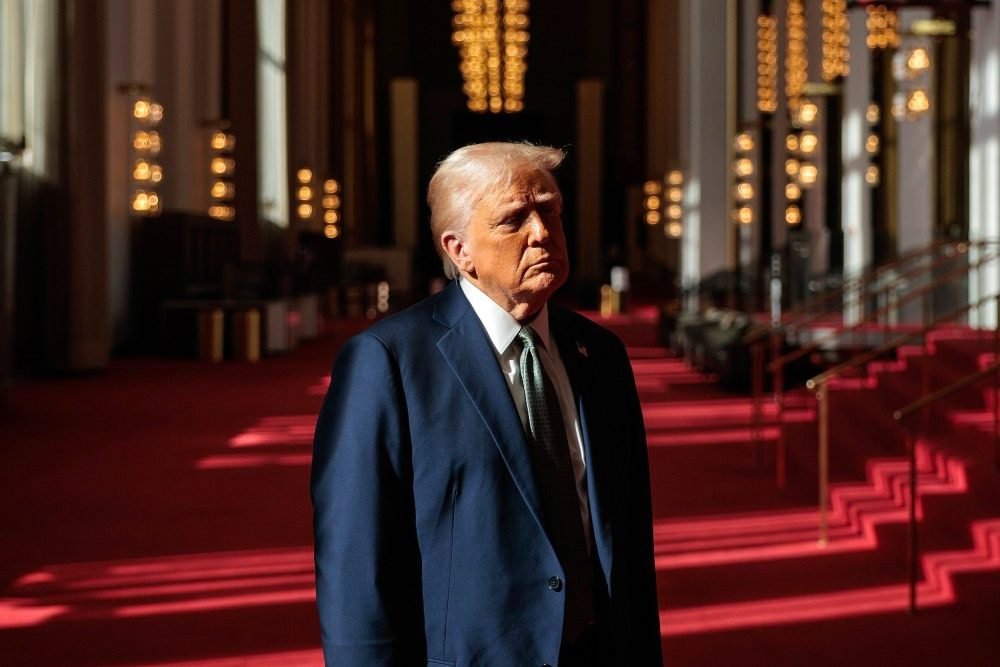In a recent statement that has sent ripples through the political sphere, President Donald Trump has hinted at the possibility of seeking a third term in office. Speaking from his private club, Mar-a-Lago, in Florida, Trump told NBC News, “I’m not joking” about the idea of serving beyond his current second term, which is set to end in early 2029. This declaration has sparked a heated debate, especially considering the constitutional barriers that stand in the way of such a move. The 22nd Amendment, ratified in 1951 following President Franklin D. Roosevelt’s unprecedented four terms, explicitly states that “no person shall be elected to the office of the President more than twice.” This amendment was designed to safeguard the democratic principles of the United States and prevent any individual from holding excessive power for an extended period. Trump’s suggestion of circumventing this amendment has raised eyebrows and concerns among legal experts and the general public alike.
Despite the legal hurdles, Trump’s comments have resonated with some of his supporters. Steve Bannon, a former Trump strategist, has publicly called for the president to run again in 2028. Additionally, individuals like Kayla Thompson, a 30-year-old former paralegal from Wisconsin, have expressed their belief that “America needs him.” However, not everyone shares this sentiment. Rep. Daniel Goldman, a New York Democrat, condemned Trump’s remarks, stating that they reflect an “escalation in his clear effort to take over the government and dismantle our democracy.”
Constitutional law experts have weighed in on the matter, asserting that there are no credible legal arguments supporting Trump’s pursuit of a third term. Jeremy Paul, a constitutional law professor at Boston’s Northeastern University, emphasized that the 22nd Amendment is clear in its prohibition. Furthermore, Derek Muller, a professor of election law at Notre Dame, pointed out that the 12th Amendment also bars Trump from running for vice president, thereby eliminating any potential “workaround” through that avenue.
Some analysts suggest that Trump’s talk of a third term may be more about political strategy than a genuine intention to defy the Constitution. According to Muller, Trump might be using this idea to “show as much strength as possible” and avoid appearing as a “lame-duck president.” This tactic could be aimed at maintaining his influence and relevance in the political landscape, even if the prospect of a third term is legally untenable.
As the debate surrounding Trump’s potential third term continues, it underscores the importance of upholding the democratic principles enshrined in the U.S. Constitution. While the idea may garner attention and support from certain quarters, it also serves as a reminder of the need to respect and defend the established legal framework that ensures a fair and balanced political system. The coming months and years will reveal whether this discussion remains a theoretical exercise or evolves into a more significant challenge to the nation’s democratic traditions.




